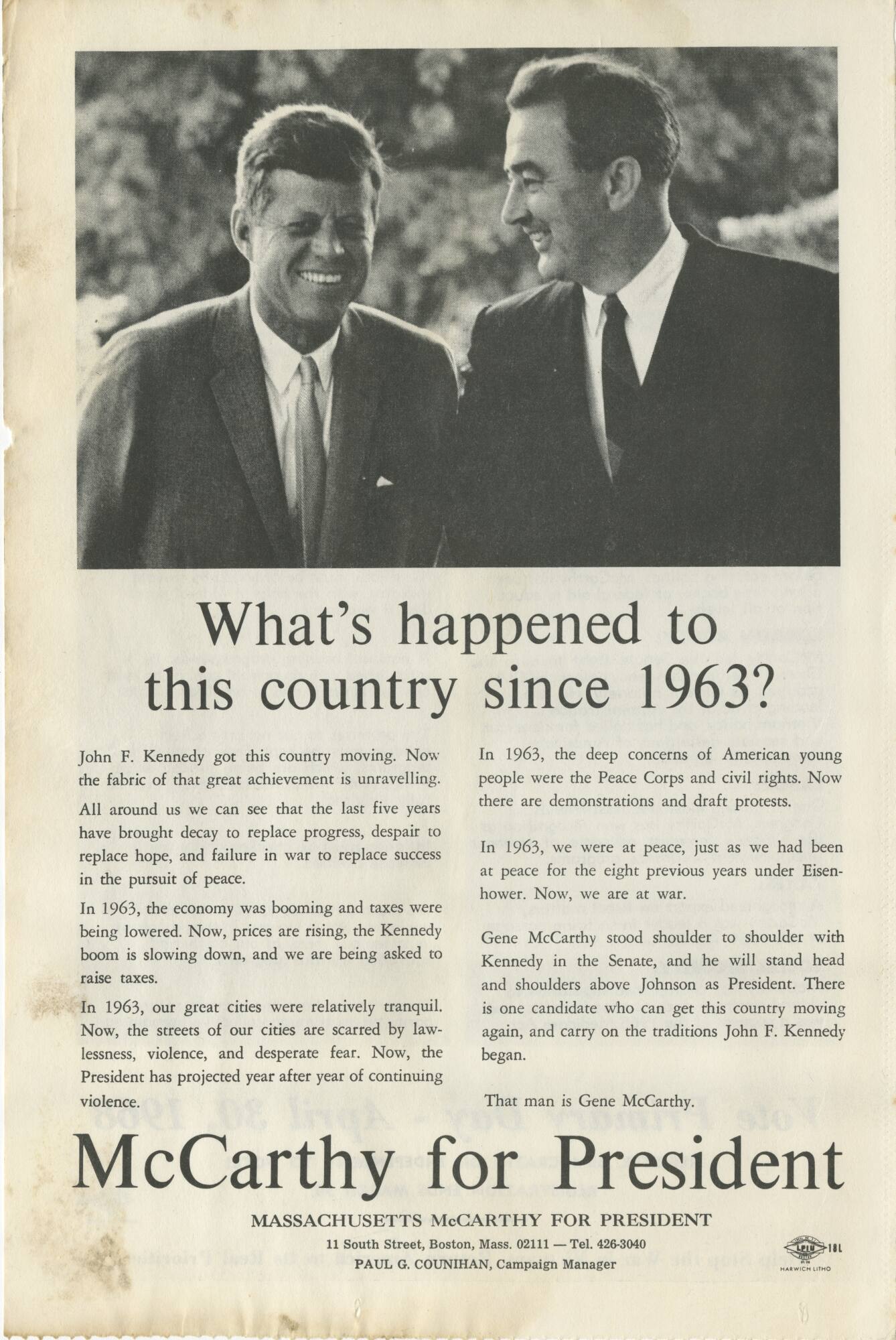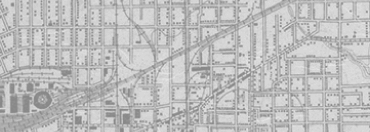


Back
Campaign ad for Eugene McCarthy
One-page advertisement for the Eugene McCarthy campaign during the 1968 presidential election; the page appears to have been removed from a magazine.The front has a black and white photograph of McCarthy with John F. Kennedy above the title: "What’s happened to this country since 1963?" A short essay follows, describing the state of America in 1963 as well as explaining McCarthy's relationship to Kennedy. At the bottom, under another title, "McCarthy for President," is the publishing information, with the union logo on the right, reading:"Massachusetts McCarthy for President11 South Street, Boston, Mass. 0211 - Tel. 426-3040Paul G. Counihan, Campaign Manager"The reverse lists "The McCarthy Record" and "The McCarthy Program" on either side of the page. The advertisement concludes by reminding the public to vote in the primaries on April 30, 1968.
Campaign ad for Eugene McCarthy
1968
Paper
11 1/4 × 7 7/16 in. (28.6 × 18.9 cm)
The Sixth Floor Museum at Dealey Plaza Collection
2015.075.0001
President Lyndon Johnson recognized the power of the Kennedy legacy in the immediate aftermath of the assassination, and he used it to great political effect during the 1964 election. Virtually every Democratic presidential candidate since that time has included the image or the words of John F. Kennedy in their campaign materials, holding up the late president as a shining example of party leadership -- and also tapping into the unfulfilled hope and promise that Kennedy represents. Some candidates, including Bill Clinton and Barack Obama, have been specifically compared to John F. Kennedy in terms of their optimism and soaring rhetoric. - Stephen Fagin, Curator

Campaign ad for Eugene McCarthy
One-page advertisement for the Eugene McCarthy campaign during the 1968 presidential election; the page appears to have been removed from a magazine.The front has a black and white photograph of McCarthy with John F. Kennedy above the title: "What’s happened to this country since 1963?" A short essay follows, describing the state of America in 1963 as well as explaining McCarthy's relationship to Kennedy. At the bottom, under another title, "McCarthy for President," is the publishing information, with the union logo on the right, reading:"Massachusetts McCarthy for President11 South Street, Boston, Mass. 0211 - Tel. 426-3040Paul G. Counihan, Campaign Manager"The reverse lists "The McCarthy Record" and "The McCarthy Program" on either side of the page. The advertisement concludes by reminding the public to vote in the primaries on April 30, 1968.
Campaign ad for Eugene McCarthy
1968
Boston
Presidential campaign
Postcard
1968 presidential election
McCarthy, Eugene
Kennedy, John F.
Paper
11 1/4 × 7 7/16 in. (28.6 × 18.9 cm)
The Sixth Floor Museum at Dealey Plaza Collection
2015.075.0001
President Lyndon Johnson recognized the power of the Kennedy legacy in the immediate aftermath of the assassination, and he used it to great political effect during the 1964 election. Virtually every Democratic presidential candidate since that time has included the image or the words of John F. Kennedy in their campaign materials, holding up the late president as a shining example of party leadership -- and also tapping into the unfulfilled hope and promise that Kennedy represents. Some candidates, including Bill Clinton and Barack Obama, have been specifically compared to John F. Kennedy in terms of their optimism and soaring rhetoric. - Stephen Fagin, Curator











